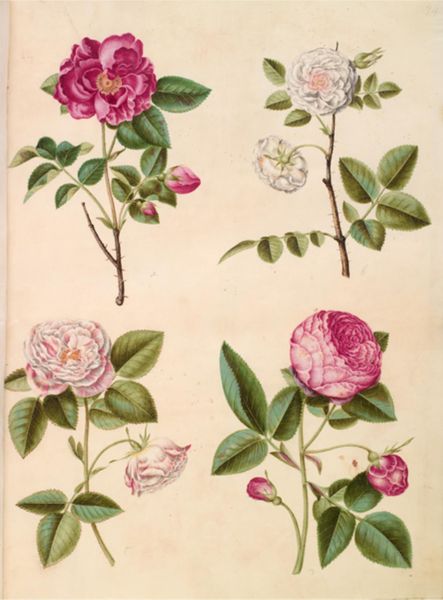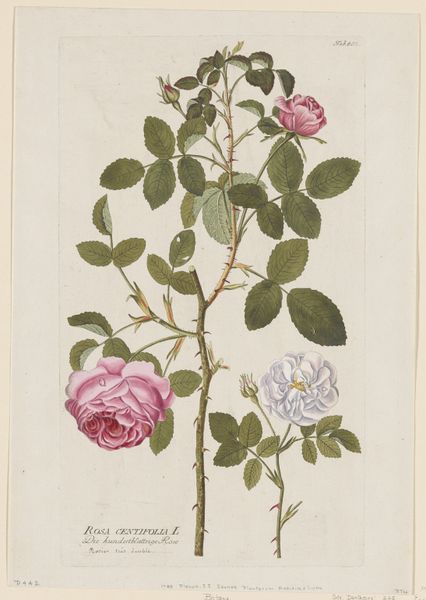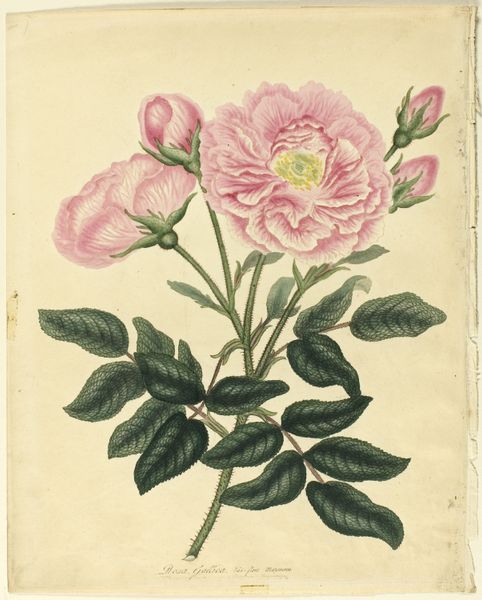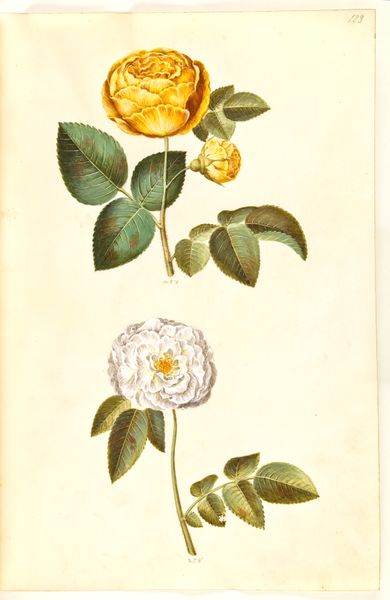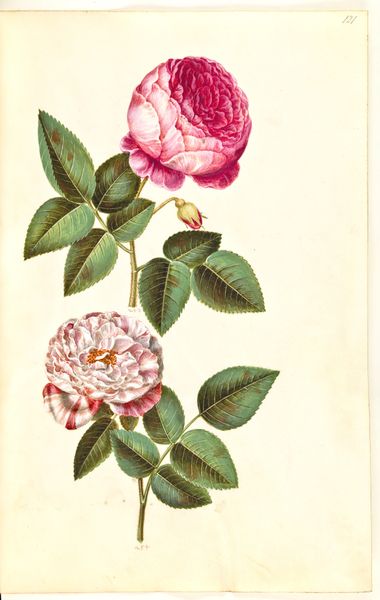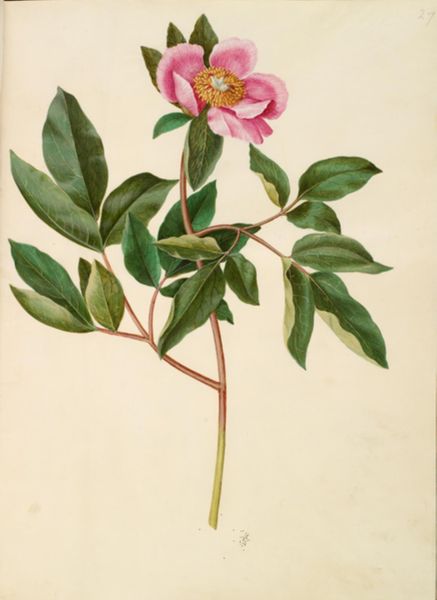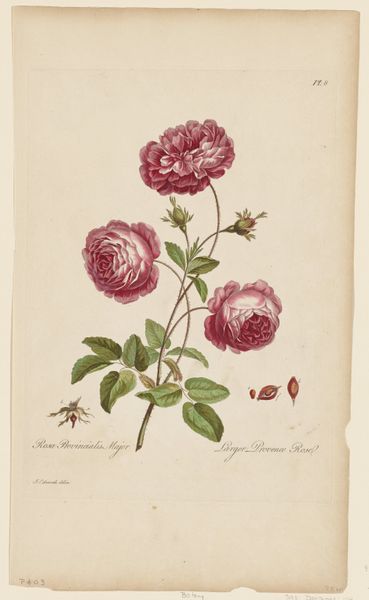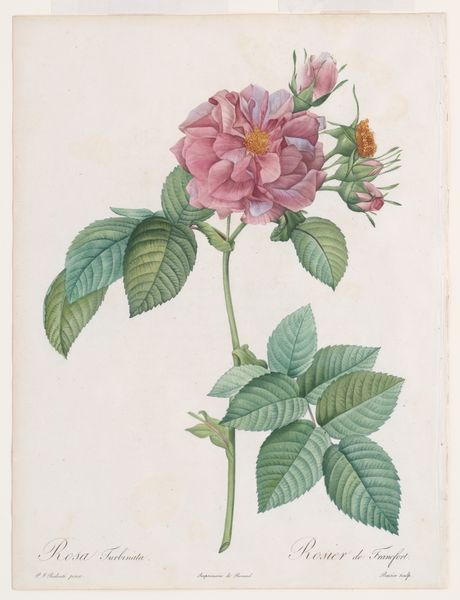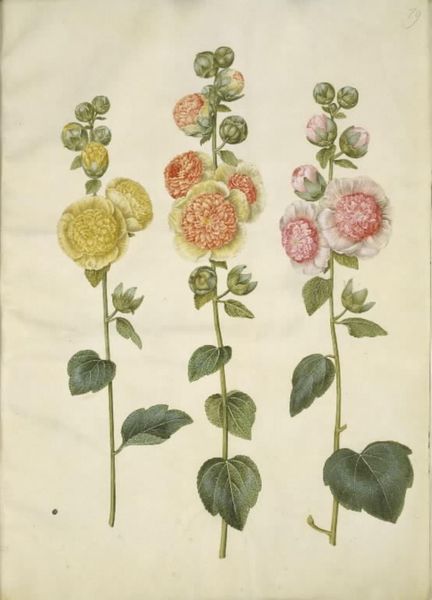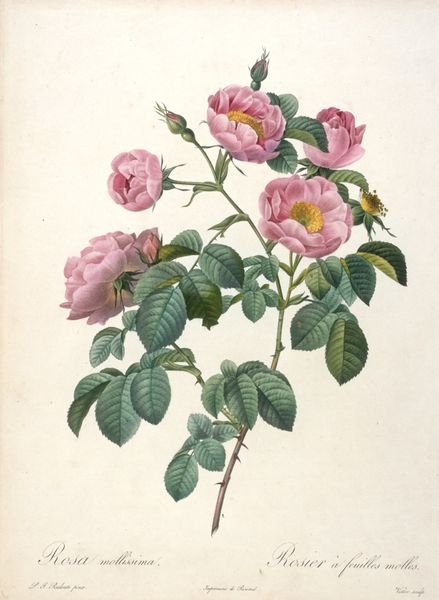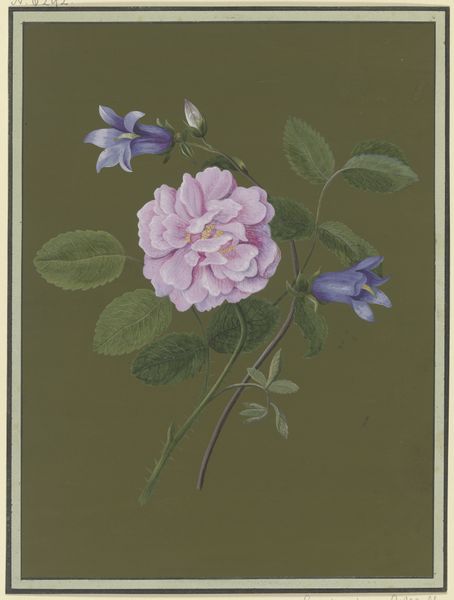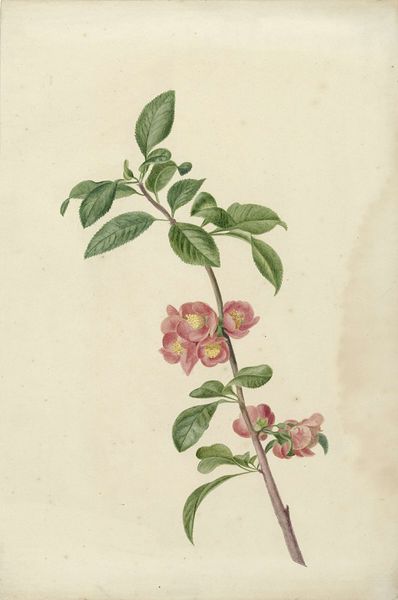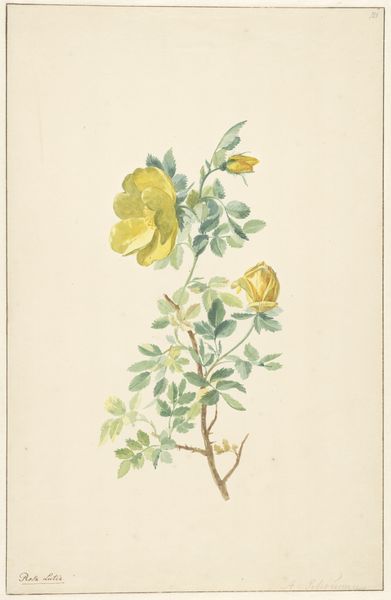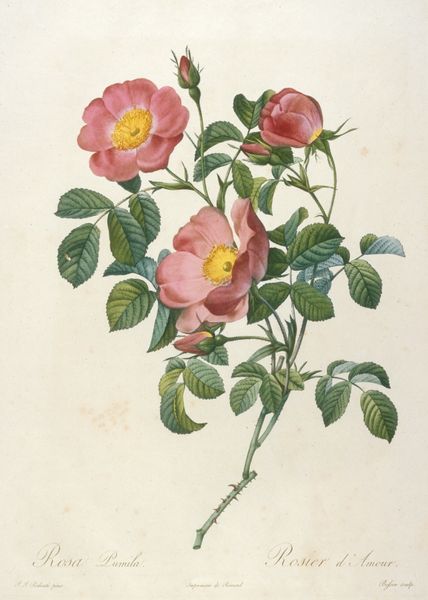
Rosa hemisphaerica (svovlgul rose); Rosa gallica (fløjls-rose); Rosa ×damascena (damascener-rose) 1649 - 1659
0:00
0:00
drawing, gouache, watercolor
#
drawing
#
water colours
#
gouache
#
11_renaissance
#
watercolor
#
watercolour illustration
#
northern-renaissance
#
watercolor
Dimensions: 505 mm (height) x 385 mm (width) (bladmaal)
Hans Simon Holtzbecker created this botanical study of ‘Rosa hemisphaerica; Rosa gallica; Rosa ×damascena’ in the 17th century. Holtzbecker’s careful watercolor and gouache on vellum align with the period’s burgeoning scientific interest in the natural world, a world increasingly open to exploration and exploitation through colonial expansion. Flowers, especially roses, carry a heavy symbolic weight. They often represent femininity, love, and beauty, yet their cultivation and presentation can also speak to power dynamics and social status. In Holtzbecker's time, the meticulous depiction of flora was both an artistic and scientific endeavor, reflecting a desire to classify and control nature. Consider the emotional resonance of these roses. Are they simply beautiful objects, or do they evoke something deeper about our relationship with the natural world? Holtzbecker’s work exists at the intersection of science and art, mirroring society’s evolving understanding of nature and its place within it.
Comments
No comments
Be the first to comment and join the conversation on the ultimate creative platform.
